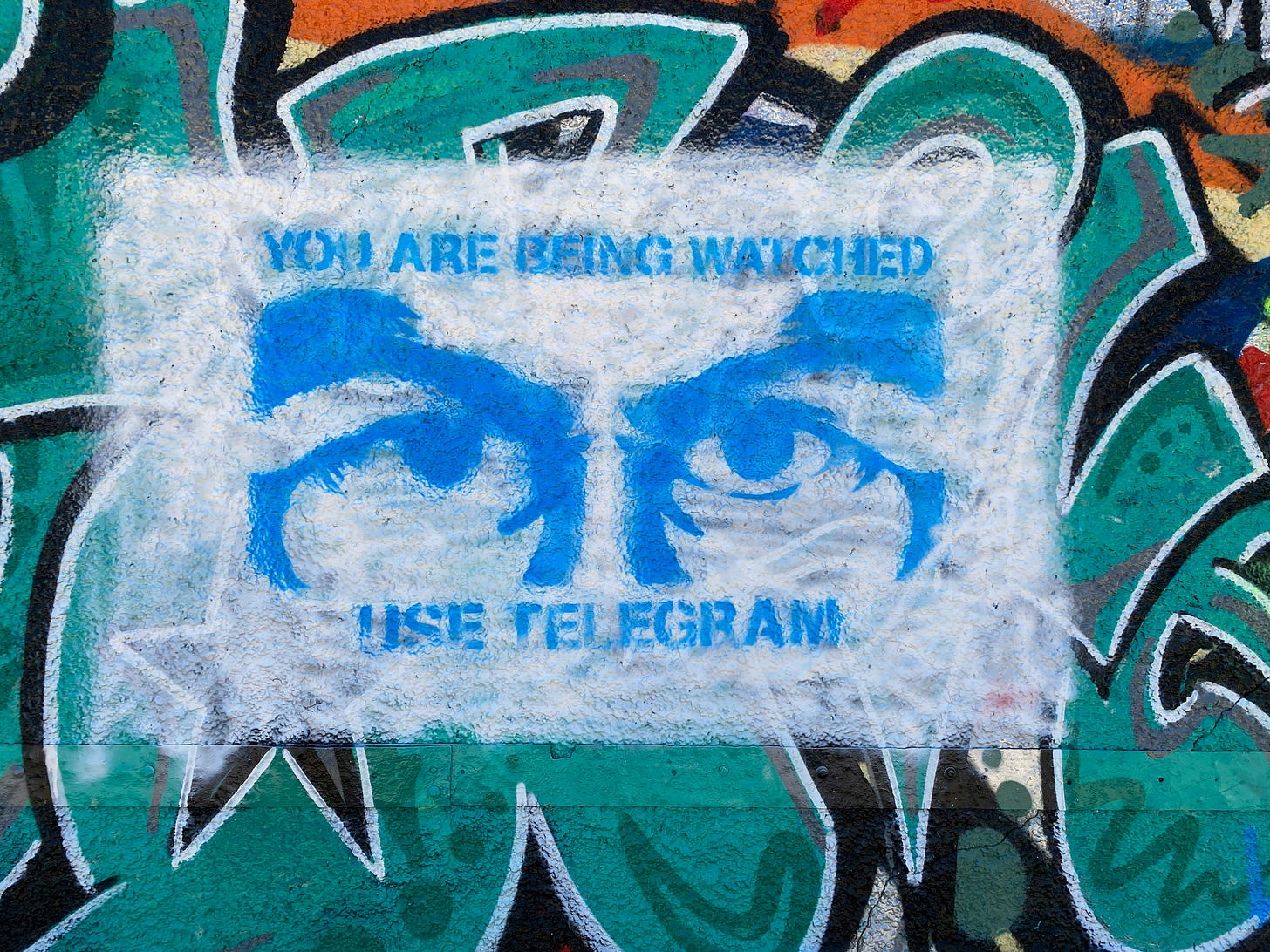
Here’s an unpopular opinion: As bad as the good old days of the internet were — what with waiting an eternity to download a text file or holding the home phone lines hostage — that clunky set up actually made it harder to track one’s digital footprint. Hard to believe now, in a world where an Instagram like or TikTok dance could flag you as a person of interest.
Call me paranoid, but yes, Big Brother is indeed watching —- and I’m not just talking about awkward targeted ads. As we head into a potential cranking up of the surveillance state under the incoming administration, the topic of digital privacy should be cause for pause to anyone gearing up to defend and protect our rights and freedoms. All it takes is a quick survey of the digital landscape in 2025 — and this is before power even exchanges hands!
Content suppression: Posting about a protest or using the “wrong” keywords? Instant “community standards violation”. Documenting human rights abuses? Better avoid words like “attack” or "violence" - even if that’s literally what you’re trying to denounce.
Shadow banning: From Palestine to Iran, from climate protests to human rights work, activist posts either get shown to nobody, or fall victim to algorithm favoritism, which – surprise, surprise – always favors rage-bait.
The digital divide is real: Hard to believe that — in the year of our Lord 2025 and in the richest country in the world – there are still vast swaths of the population who can’t access life-saving skills or resources just because they can’t afford smartphones or the internet.
AI- related ethics and copyright issues: Messaging that could help millions gets swallowed by deepfakes, misinformation and algorithm bias. Issues with content ownership, fair use and AI-moderated content make it even harder for creators to be accurate and transparent.
Big tech companies are getting cozy with the orange baboon: they’re eliminating fact-checking, deleting and suppressing evidence of actual human rights violations, all while letting conspiracy theories run wild. They're not just taking notes — they're gearing to share them with those who aren't *necessarily* fans of progress.
What a time to be alive, amirite? What’s even more terrifying is that everything we post today gets filed away in some server farm, potentially forever. As we know, posting online is like writing in permanent marker: even if you try to cross it out later, someone with the right tools can still find it. Meaning that in the wrong hands, those cute photos you posted at the climate rally could make tomorrow's dissenter target list. And make no mistake, those surveillance databases have more patience than prehistoric rocks.
But before we all wrap our phones in tin foil and move to a cave somewhere, there’s a couple of practical solutions we can implement to safeguard our digital footprint. Our future selves will thank us!
Turn off your bat signal: Your phone was designed to poach and sell your information to the highest bidder. Disabling your data sharing settings will not only make it harder for them and installed apps to snitch on your activities, it will also prevent privacy breaches. Bonus? Your battery will last longer too.
Lock those social accounts down: Ideally, you’d be deleting any Meta or X related accounts, but I know that’s not always feasible. If you must stay on them — for your job, business or any other reason — crank up every privacy setting, turn location sharing off, and maybe think twice about posting from that protest – or anywhere – in real-time.
Organize smarter: Create simple security rules anyone can follow. Keep organizing discussions offline, and switch to encrypted channels: Signal for messages (more secure than Telegram), ProtonMail for email, and a solid VPN for everything else. All good bets.
Be password proactive: Stop using the same password everywhere, and make sure to change them often. Use a password manager to store and organize your passwords. A couple of popular options are LastPass, Dashlane, and 1Password.
Bring online offline: When your favorite app goes dark (as TikTok plans to do), or when their owners reveal their true colors (ahem, Zuck and Elmo) you'll want to have backup channels that don't require a TOS agreement.
Watch for red flags: Speaking of Terms of Service, keep your eyes peeled for data creep. Any sudden updates to terms of service to expand data collection, new laws about "digital security" that require backdoors in encryption, tech companies "partnering" with law enforcement, or apps starting to require government ID — are all big 🚩🚩🚩
Hey, none of us wants to go back to the times of dial-up, right? So we’re going to stay in the fight, we’re just going to fight smarter. The point isn't to become paranoid – it's about being prepared. The time to start being careful isn't when the crackdown hits. It's now.
Like those old dial-up modems, tech will continue to be messy, but we can figure out a workaround, can’t we? The most important thing going forward is making sure we can connect and share resources safely. After all, the most powerful tool in our arsenal isn't an app or a platform – it's the community we build along the way.
So yeah, the revolution may not be televised, but it will definitely be digitized. But if you take these words to heart, it will also be encrypted and have a clear cache.😉



